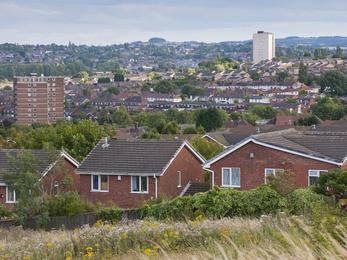New research is published today showing that bats and great crested newts were a factor in just 3% of planning appeal decisions. This evidence that nature does not block growth is published as the Planning & Infrastructure Bill reached a critical stage today when the Committee discussion of the Bill ended. The report, Planning & Development: nature isn’t the problem, adds to the growing body of evidence – including the Government’s own impact assessment – showing that nature protections do not block growth.
A new poll*, also published today, shows that the public think the Government is failing nature. Conducted by Savanta and commissioned by The Wildlife Trusts, it finds:
-
Less than a third of adult voters believe the Government is taking the nature crisis seriously enough (26%), is listening to local people in planning decisions (24%) and is achieving success in expanding nature-rich habitats (24%).
-
Less than a third (32%) also felt the Government had kept its promise to improve access to nature, promote biodiversity and protect our landscapes and wildlife.
-
Just a quarter of respondents (25%) said they would support new building developments in their local area if these new developments harmed the local environment.




